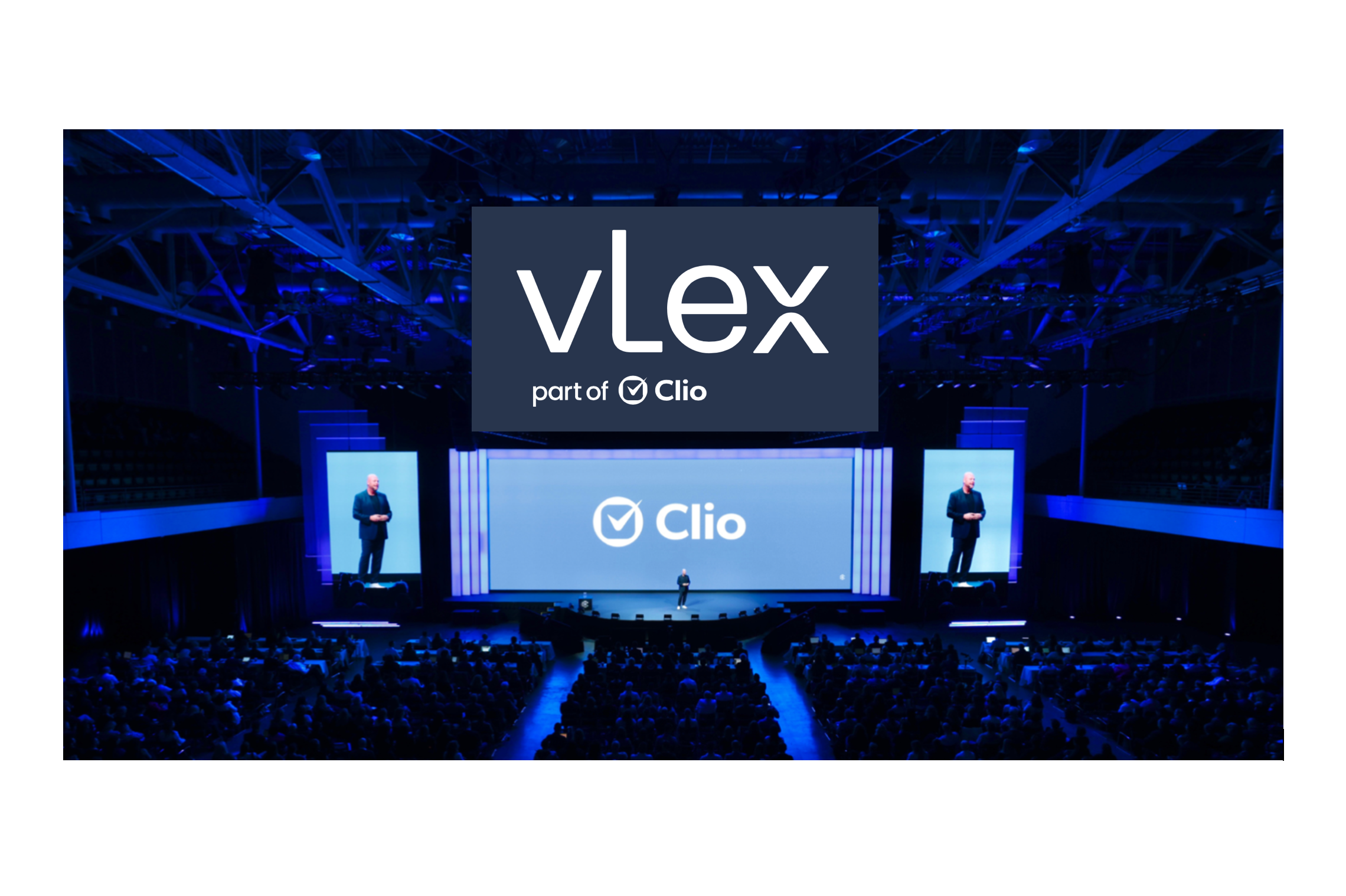
Clio – a legal business operations company, and vLex – primarily a legal research platform, have finally sealed the deal. Clio has also bagged a lot more cash. But, as the dust settles they face some interesting strategic challenges and opportunities. AL explores.
Fundamentally we have two businesses that don’t on first appearances have a clear bridge between them. Legal research is at the heart of a lawyer’s daily work. Meanwhile, practice management is a laborious area where Clio’s software helps hundreds of small, medium and now some larger firms. Both super-useful. But, neither flow naturally into each other.
vLex has also added an ‘outer ring’ of legal AI skills that go all the way to M&A due diligence, but realistically it’s their legal research-related genAI capabilities, e.g. helping a lawyer to draft from info they have found in the platform, that will be used the most.
Meanwhile, Clio’s new cash – $500m equity and a $350m debt facility (i.e. $850m in total), can be used in plenty of new ways beyond growing the law firm operations side of the now combined company, e.g. via more M&A deals.
So, where do they go from here? Here’s some thoughts.
First, vLex is not Thomson Reuters or LexisNexis. Estimates online suggest its last independent revenue figures to be at around $45m at the top end – although the company has not publicly verified that. That total is a fraction of what TR and Lexis make globally on legal research.
Second, vLex as part of Clio, and even with all the extra money, cannot easily just buy up other large legal data providers to fill this out, at least that will move the dial in core markets. Why? Because there aren’t many left to buy in the US and UK, although they could go to Europe and Asia to widen things and pick up some smaller regional companies. But, would that help them to take the battle to TR and Lexis in the core American market…? Well, no. But, it would build out their legal data revenue.
—
Legal Innovators New York Conference is next week – Nov 19 and 20!

—
Third, vLex has, as noted, developed a range of legal AI skills. But, when AL talks to the market the general feedback is that most law firms are buying A) broad productivity platforms, B) very focused point solutions, e.g. just for review and drafting, and C) buying the big legal data providers and using – but not always – their legal AI skills for more transactional needs as well.
Can vLex, with Clio’s help break through? Can it build a very broad productivity platform to take on Harvey and Legora, or TR and Lexis’s own ‘outer rings’? It’s possible, but not probable, at least for Big Law, which seems to have chosen one or the other of the above.
Could they connect legal data, AI productivity and Clio’s business of law platform and expand their ‘wallet share’ among small and medium-size law firms? Yes. That seems logical. They can also cement this by having a lower price than some rivals.
But what about all the new Clio cash? Could that be used to buy up a range of point solutions and bulk up their productivity offering? Yes. That seems to be a very sensible strategy. Not that at current valuations even $500m will get you a lot of legal tech – at least not that many successful companies with good revenue, (considering some companies are seeing 40X or more revenue valuations…..i.e. a company with just $20m revenue would be almost unaffordable at those valuation multiples, as that would be $800m in theoretical value, and which would use up most of their spare money all in one go). But, they could aim for multiple much smaller companies, and those that are ‘not cool at the moment’ where valuations may be more like 5X. But, if they do that, do they just end up with a lot of ‘pieces’ that can’t move the market? Not that there aren’t a lot of companies begging to be bought right now. AL can think of several that would LOVE to be taken over and for their founders and long-term shareholders able to walk away. But, are those the companies the ones Clio wants to buy? Do companies that are desperate to sell help to make a wider platform to go to market with that will succeed and convince the buyers?
Either way, AL is expecting Clio to announce more M&A deals. (I could be wrong, but it seems logical they would do this now.)
Conclusion
When they did the vLex deal, AL suggested that in time and with the right investments the Clio / vLex marriage could help to create a Big Three. And that is still true, albeit even with all the funding it will be a long journey to get there. But, it’s not impossible by any means.
To do this money doesn’t seem to be the only challenge. Investors clearly love Clio and its management team, headed by Jack Newton. Although, as noted, even $500m these days doesn’t buy you market supremacy, which is a wild realisation. For example, Harvey is valued at $8 billion and is only three years old.
Getting the business strategy right – in a market that is evolving super-fast now – is the real challenge.
A host of acquisitions could really help, although manic M&A can create its own challenges around integration, (talk to those who have tried this strategy…). Building a data monster to take on TR and Lexis will also be tricky. Building a productivity platform that can beat Legora and Harvey is also hard now….as those ships have sailed for Big Law at least.
That leaves us with Clio doing what it does best: dominating small law and mid-law operations, and where possible nudging into Big Law for those law firms that fancy a change from the companies they usually deal with. Then, vLex adds in extra capabilities with legal data and AI skills. But, in some ways we are back to the beginning.
That said, there are huge opportunities here. The US legal market alone is estimated to be worth around $500 billion, and only part of that is Big Law. Globally, there are plenty of opportunities as well, and the worldwide legal market is considered to be $1 trillion now. That is a lot of market to grow within.
Ultimately it all comes down to what the combined management teams of Clio/vLex and their investors really want to build over the next five years. If they go the M&A route, will those new deals work? If they go organic, can they bridge legal data and legal business operations to build something harmonised that can really go global?
To that end, here’s Jack Newton, Clio’s CEO:
‘We founded Clio to transform the legal experience for all, and this milestone brings that mission to a new horizon. With vLex now part of Clio, and 350+ experts in law, data, and technology joining our team, we are combining the best minds and the best tools to build the worldʼs most powerful legal intelligence platform, a platform that will define how legal work is done for generations to come.’
Good luck to them. There is everything to play for.
—
Legal Innovators New York Conference is next week!
The Legal Innovators New York conference is next week, November 19 and 20, with the event taking place in Midtown inside Latham & Watkins’ office.
The event is over two days, Day One: law firms, and Day Two: inhouse – and you are very welcome to take part in both to hear the latest insights about our increasingly AI-driven legal world and network with some of the most innovative law firms, ALSPs, tech companies, and corporates in America and beyond.
To take the speedy boarding route to Legal Innovators New York, on Nov 19 and 20, then please sign up here – which is free to attend for those at law firms and inhouse.
See you there!

Discover more from Artificial Lawyer
Subscribe to get the latest posts sent to your email.